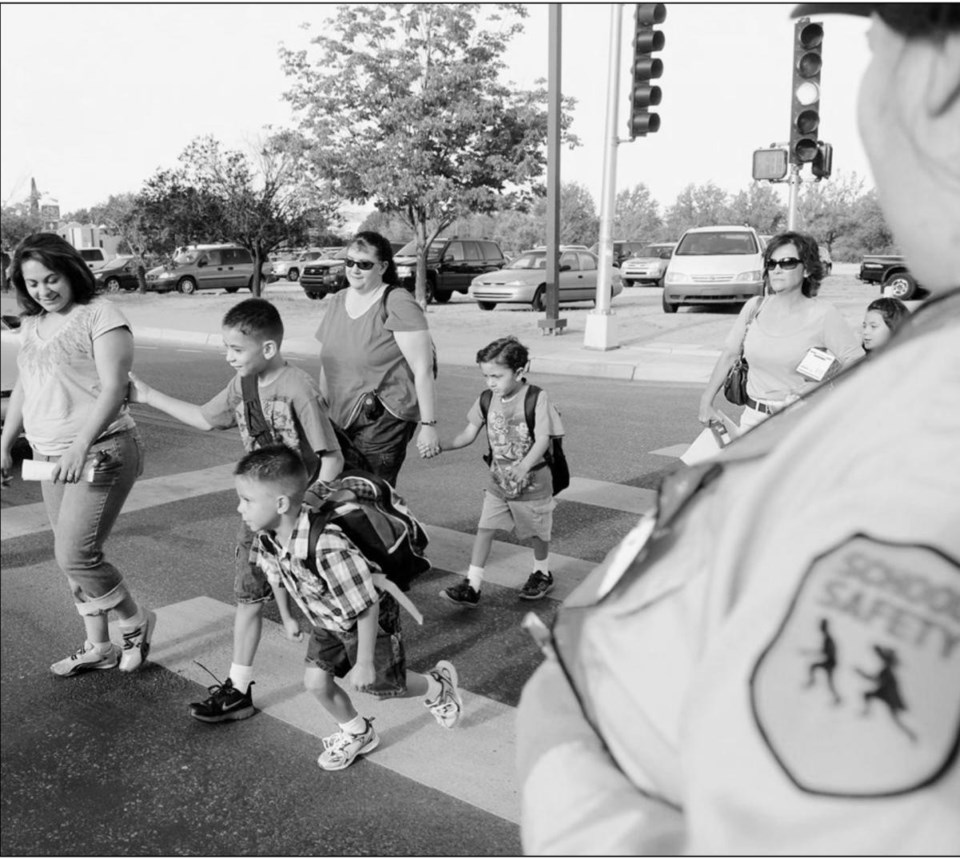Going back to school can be an exciting time of year, but the experience can bring with it many emotions.
It's natural to be a little nervous, especially for a child starting kindergarten or for youngsters moving on to a new school.
Keeping the lines of communication open can go far to ease the transition from those lazy days of summer to the more structured days in the classroom, says a psychologist with the Calgary Board of Education.
"Just be open and talk about the fact that everyone gets a bit nervous and try to differentiate what's excitement with anxiety. Talk about all the positive things in school," Denise Watts, supervisor of psychological support services for the board, said in an interview.
"Make the whole process of going back seem exciting and a natural kind of tension around there being new things but not really making it seem terribly scary," she said, adding that "for 95 per cent of the kids within a few days they're in with their friends and they're enjoying the things that school has to offer."
Remind them that they're going to see their friends again, along with something else that they like, such as art class or gym.
Watts said she's seen some parents who seem more stressed than the children.
"Sometimes you see these moms coming for the first day of school and the child is fine and [the mom is crying her eyes out]."
Watts has a list of ways to alleviate stress.
"For me it's communicate, be available, normalize the situation, predict what might happen - this is where your coat will go, this is where your lunch will go, and so on - so that they feel they know their way around, preparing and planning ahead, getting medical and dental checkups, making sure they're eating, being careful about too many other things going on, be willing to seek professional resources if a problem goes on too long."
Schools attempt to ease early-year jitters, such as holding open houses or tours or setting up a system of peer buddies. Knowing where to go on the first day of school can help.
"Some schools do announce lists in June, but they can change over the summer, which is why a lot of schools are reluctant to announce," said Cathy Ward, communications manager for the Calgary Board of Education. "Depending on the registrations they get, and the demographics, it can change.
"In an elementary school, if they don't get enough students in Grades 3 and 4 for two separate classes, it may be a split class and it may be a different teacher. But usually that information is posted before the first day of school at the schools themselves. They're generally not arriving on the first day not knowing where they're going to go."
Simon Pequegnat of Guelph, Ont., expressed some worries to his mom, Iris Lambert, about making new friends when he was about to enter Grade 7 at a new and larger school. She told him she'd had the same concerns prior to starting at the very same school when she was a student. She quickly became friends with a girl in her class and the friendship has continued for some 40 years.
"That reassured him. He didn't feel as nervous about changing schools," Lambert said.
For most kids it's a few days till they find a friend and reestablish routines, Watts said.
"But anything that's really persistent or anything where the child is having nightmares or school refusal, those sorts of things, obviously that has to be dealt with much quicker."
School boards have professional resources to help with learning issues, bullying or mental-health problems like depression.



